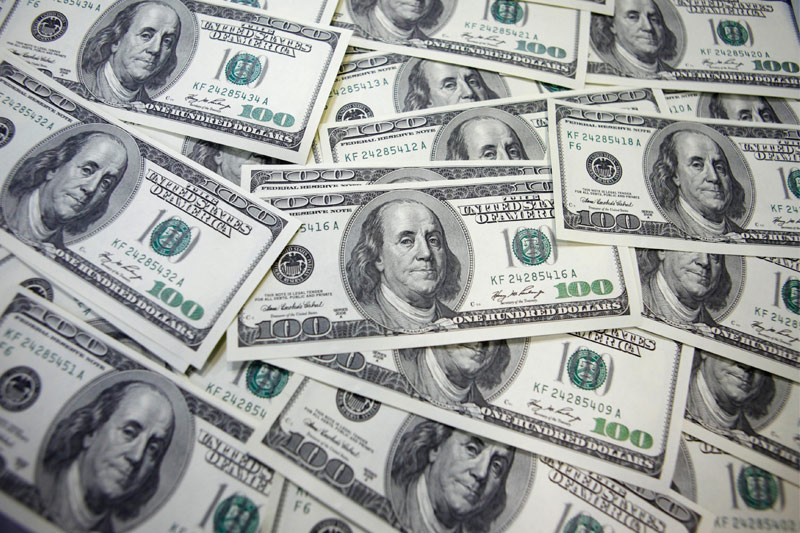* Dollar's Trump bump runs out of puff
* Kiwi hits 4-month high as rate-cut expectations ebb
* Graphic: World FX rates in 2019 http://tmsnrt.rs/2egbfVh (Updates with more details)
By Sujata Rao
LONDON, Dec 5 (Reuters) - The dollar retreated on Thursday towards one-month lows against a basket of currencies, pressured by a slew of weaker-than-expected economic data and this week's robust performance by the euro and the British pound.
Most currencies traded in tight ranges after turmoil induced by conflicting headlines on the fate of a phase one U.S.-China trade deal and lack of clarity on whether any kind of agreement can be reached before Dec. 15, when additional U.S. tariffs kick in on Chinese goods. focus was also on how much damage the trade war is causing and whether the signs of economic stabilisation seen in the euro zone and Chinese data can continue.
German industrial orders fell unexpectedly in October, data showed on Thursday, but U.S. trade, durable goods orders and weekly jobless data are likely to garner greater attention later in the day.
That data will follow Wednesday's dismal figures on private payrolls and services activity. On Monday data showed U.S. manufacturing activity contracted for the fourth straight month and construction spending declined manufacturing activity in the euro zone beat expectations.
"The data has been a little bit on the disappointing side so the dollar is having a pretty bad week. But a large part of that is also to do with the move in major European currencies and that has weighed on the dollar," said Stephen Gallo, European head of FX strategy at BMO Capital Markets.
Sterling is up more than 1.5% this week to the dollar, as it appears likely that the Conservative Party will win a majority in next week's election and end 3-1/2 years of Brexit-related uncertainty by taking Britain out of the European Union.
That has given a boost to the euro, which has also benefited from recent better-than-expected data. It has gained 0.6% against the dollar this week.
The euro EUR= firmed marginally against the dollar on Thursday to $1.1086 while the greenback edged down 0.14% against a basket of currencies .DXY to 97.517.
The British pound traded at a new seven-month high of $1.3146 and against the euro too it extended gains to a new 2-1/2-year high of 84.31 pence question now is whether the U.S. Federal Reserve could turn dovish if the weak data flow continues. No Fed rate rise is priced in until next September but traders will be on the watch for the tone of its statement.
"The ADP (NASDAQ:ADP) payrolls report was slightly disappointing, and if replicated in Friday's jobs numbers, could prompt speculation about the prospect of the Fed being a little more dovish at next week's central bank rate meeting," CMC Markets told clients.
Earlier, domestic factors moved the Antipodean currencies in opposite directions. Australian dollar AUD=D3 slipped 0.2% to $0.6838 after weak retail sales and exports data but the kiwi NZD= climbed to a four-month high, as softer-than-expected banking reforms led to a reduction in rate-cut expectations. Canadian dollar CAD=D3 traded at a near one-month high of 1.3203 per greenback, after the country's central bank held interest rates steady and said there were signs the global economy was stabilising.
